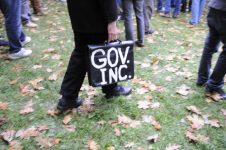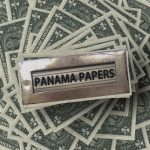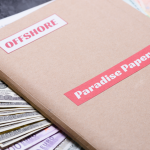Calls to Prevent Corrupt Foreign Officials from Using Our Banks

British-American policy advisor Bill Browder has led calls for “rule of law” nations such as Australia to enact laws similar to the ‘Magnitsky Act’ in the United States, which make it harder for corrupt foreign state officials to launder embezzled money by using international commercial systems.
The Magnitsky Act
The Magnitsky Act is named after Russian tax accountant Sergei Magnitsky, who was imprisoned and later beaten to death behind bars after accusing Russian state officials of embezzling $US230 million of public funds.
Mr Magnitsky was killed just seven days before the end of the 12 month period he could be held without trial.
The original intention of the Act was to make the officials who were suspected of arranging Magnitsky’s murder accountable for their actions, by preventing them from entering the United States or using the nation’s commercial infrastructure for their own benefit.
Indeed, the law resulted in several US bank accounts and assets of these officials being frozen.
Law expanded
But the law has since been applied to a number of other Russian officials who the US suspects have stolen from the public purse.
And December 2016, the US Congress broadened the scope of the law to sanction international human rights abuses by enabling the federal government to freeze and seize the assets of government officials considered to be responsible for abuses anywhere in the world.
The widening of the law exposed the United States to accusations of hypocrisy, as it makes the US federal government the judge, jury and executioner when it comes to determining and sanctioning human right abuses by foreigners, in circumstances where the US has itself been responsible for some of the worst human rights abuses of modern times.
Other countries
A total of six nations have enacted legislation similar to the Magnitsky Act, and Mr Browder would like Australia to be the seventh.
“I would like to find a multi-party group of advocates to join me in Australia, in the way I have done it in the US, UK and Canada, to put a Magnitsky Act to the Australian parliament,” he remarked.
On 21 February 2017, the UK House of Commons unanimously passed an amendment to the country’s Criminal Finances Bill inspired by the Magnitsky Act, allowing the government to freeze the assets of international human rights violators.
But it’s not just Australia that Broader wants on board. He has called upon all legitimate “rule-of-law countries” to pass similar laws, thereby making it more difficult for corruption to flourish.
“The Russians are not going to keep all their money in Dubai or China, they’re going to keep their money in the US, Canada, and Australia, in safe countries,” he explained.
“If we can disrupt the safety of their money it really does have a profound impact on their psychology.”
Support in Australia
Human Rights barrister Geoffrey Robertson wants to see an Australian Magnitsky Act that targets human rights violators of all nationalities.
“We’re a proud country, why should we host human rights violators?” he stated.
“Those from Sri Lanka who were responsible for the Tamil genocide, those judges in Hong Kong who are now breaching international law by repunishing pro-democracy demonstrators. We shouldn’t allow these people in, and we shouldn’t allow them to put their children in our best private schools, or put their money in our banks, or put their parents in our hospitals.”
Mr Robertson called the Act one of most important new developments in human rights, saying it provides “a way of getting at the Auschwitz train drivers, the apparatchiks, the people who make a little bit of money from human rights abuses and generally keep under the radar.”
Resistance from Russia
Mr Browder believes Mr Magnitsky failed to obtain justice, and was ultimately killed, because the crimes he exposed go all the way to the top echelons of power in Russia, including Vladimir Putin.
“We’ve traced money from the fraud going to his nominee, a man named Sergei Roldugin, who happens to be the godfather of Putin’s children, his oldest friend from childhood, who has been exposed through the Panama Papers as a cellist who is worth $US2 billion,” Mr Browder stated.
“Which means, for all intents and purposes, Putin got the money.”
Mr Browder says Putin has accused him of criminal conduct and attempted to have Interpol place him on the Red Notice list, in order to prevent him from travelling abroad.
“Putin has made this his single-largest foreign policy priority, to stop the Magnitsky Act,” he remarked.
Kremlin-linked lawyer Natalia Veselnitskaya notoriously met with then members of the Trump campaign team, Jared Kushner, Paul Manafort and Donald Trump Junior. Briefing notes left at the meeting show that the Russian lawyer was indeed lobbying the Trump team to overturn the Magnitsky Act
US intelligence chiefs have assured the media there will be no change. “This [law] is not going to change or stop”, assured National Security Agency director Michael Rogers warned:
Many fee it’s time to do our part in helping reduce international corruption by enacting a Magnitsky-style law.







